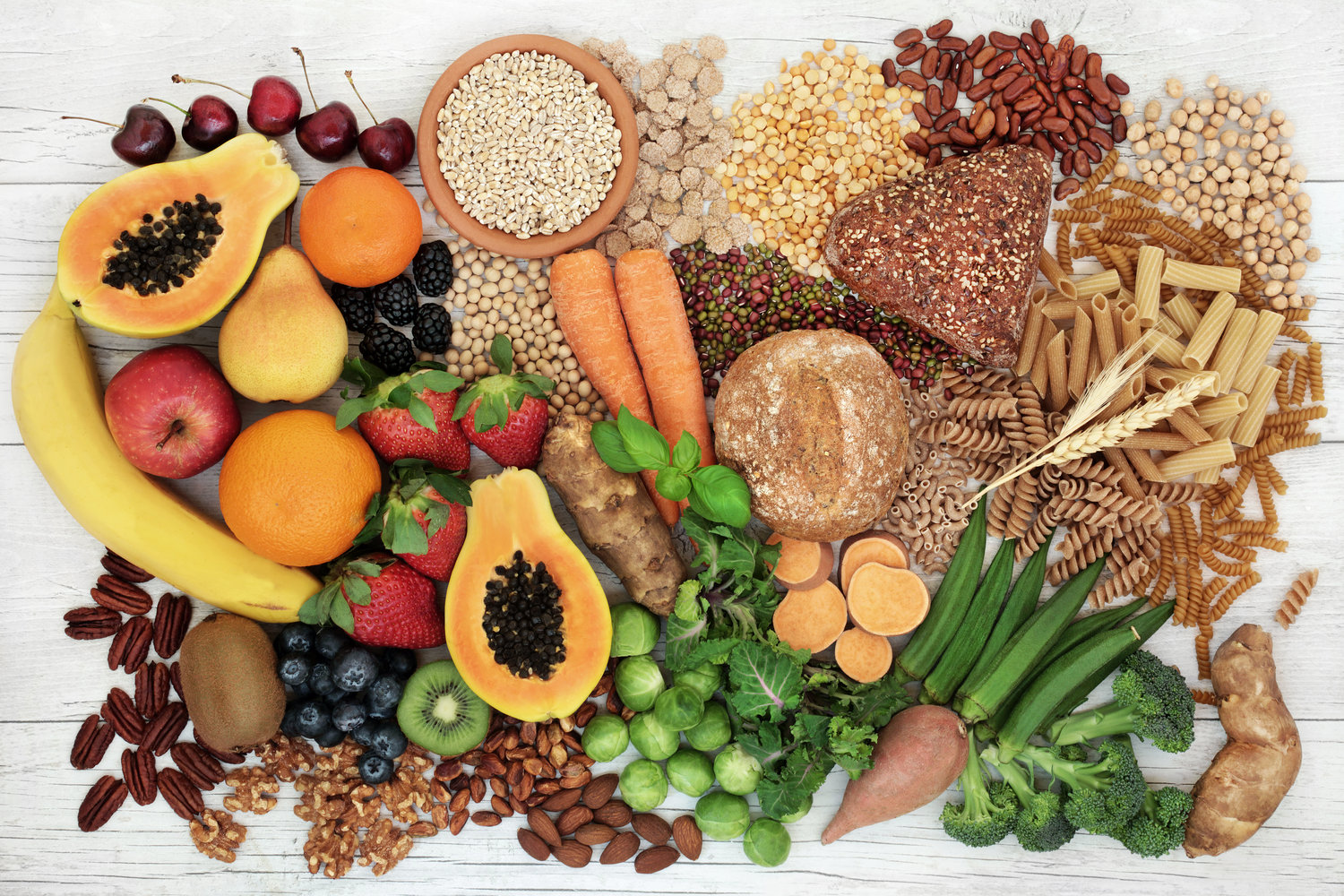What Role Does Fiber Play in Muscle Building?
Ask any health professional how to improve your digestion and he’ll tell you to fill up on fiber. This dietary nutrient is known for its ability to relieve constipation and normalize bowel movements. It also slows sugar absorption into your bloodstream, promotes satiety and suppresses appetite. If you’re looking to build muscle and strength, fiber can help. While it doesn’t directly cause muscle growth or fuel your gains, it does other things that can boost your exercise performance.
Better Appetite Control
High-fiber foods, such as apples, broccoli, oats and leafy greens, keep you full longer and increase satiety. Think about how you feel after eating a big salad or oatmeal compared to chocolate or ice cream. A salad will fill you up instantly, while ice cream will leave you feeling hungry and unsatisfied.
Dietary fiber suppresses appetite in several ways. First of all, it absorbs water and forms a gel-like substance in the GI tract, which helps slow digestion. That happens when you eat soluble fiber, a nutrient found in oat bran, psyllium husk, legumes, nuts and seeds. Secondly, it adds bulk to your meals.
Salad, for instance, takes more space in your stomach compared to ice cream or chocolate. That’s why you feel full after just a few bites.
A high-fiber intake makes it easier to stick to your diet and eat clean. This is particularly important for bodybuilders and athletes in general. Exercise and proper nutrition are equally important. Not even the best training plan can compensate for bad eating.
Improved Insulin Sensitivity
Keeping your insulin and blood sugar levels within normal limits is crucial for overall health and physical performance. Elevated insulin levels will cause your body to store excess glucose as fat. Blood sugar fluctuations affect insulin response, putting you at risk for diabetes, insulin resistance, metabolic syndrome, obesity and heart disease.
Dietary fiber slows carbohydrate and sugar absorption into the bloodstream. This helps prevent insulin and blood sugar spikes. Over time, a high-fiber diet can improve insulin sensitivity and blood glucose control. Additionally, this nutrient signals your liver to produce less glucose, which in turn, may reduce your risk of insulin resistance.
For example, eating fiber along with a carb-rich meal allows sugars to be gradually released into your system. Without fiber, sugar will be quickly absorbed into the bloodstream and cause insulin spikes.
Stronger Immune System
The good bacteria in your gut thrive on fiber. Since gut health and immune function are strongly connected, a high-fiber diet can improve your natural defenses. You’ll get sick less often and spend more time at the gym rather than being stuck at home with a cold.
A strong immune system will also help you fight exercise-induced stress and recover faster from training. According to science, regulatory T cells – produced by the immune system – support tissue repair and may prevent muscle breakdown. They also regulate insulin and blood glucose levels, leading to improved metabolic health. Furthermore, these cells fight inflammation and play a vital role in muscle regeneration.
Recent studies have found that low-fiber diets may cause imbalances in the gut flora, leading to poor health. Additionally, when gut bacteria are starved of fiber, obesity risk increases. A diet rich in fruits, vegetables, seeds and other high-fiber foods will not only keep your immune system strong but also help you get leaner and boost your digestive health.
How Much Fiber Do You Need?
Health experts recommend eating 25 to 38 grams of fiber per day. Whole grains, fresh and frozen fruits, vegetables, nuts, seeds and legumes are all an excellent choice. Another way to increase your fiber intake is to mix psyllium husk with water and consume it throughout the day.
Beware that eating too much fiber may cause bloating and nutrient deficiencies. When consumed in excess, this nutrient can bind calcium, magnesium, zinc and other minerals, which limits their absorption into your body. In extreme cases, it may lead to intestinal obstruction.






